TOMBSTONE: Cool Western That Runs Like Clockwork
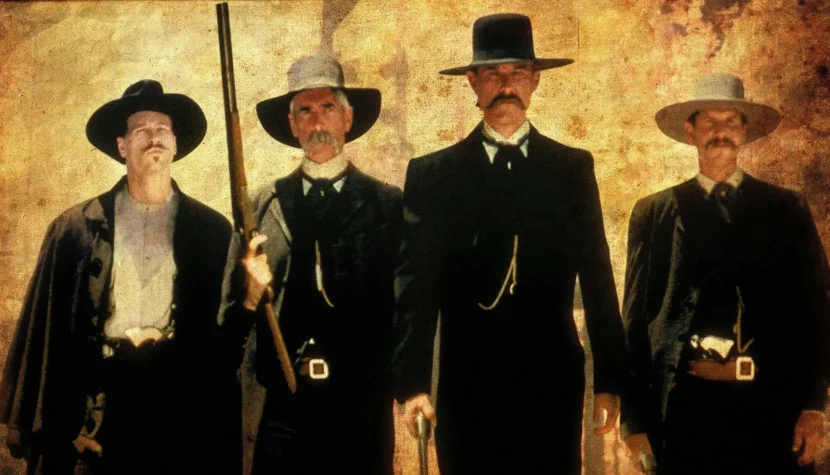
Born in the 1840s, this lawman (but also a farmer, gold prospector, avid gambler, and even… saloon owner) has appeared countless times in various forms on both the small and big screen, with more films directly about him than you could count on both hands. It’s no surprise, considering that as one of the greatest legends of the Wild West, Earp was also among the few who lived to see the dawn of the motion picture era. Moreover, he spent his final years in California, occasionally serving as a historical consultant to budding directors like John Ford. Hollywood has frequently attempted to capture his colorful life on celluloid. However, these efforts have most often focused on the famous gunfight at the O.K. Corral and Earp’s time in Tombstone, a town as legendary as he is.
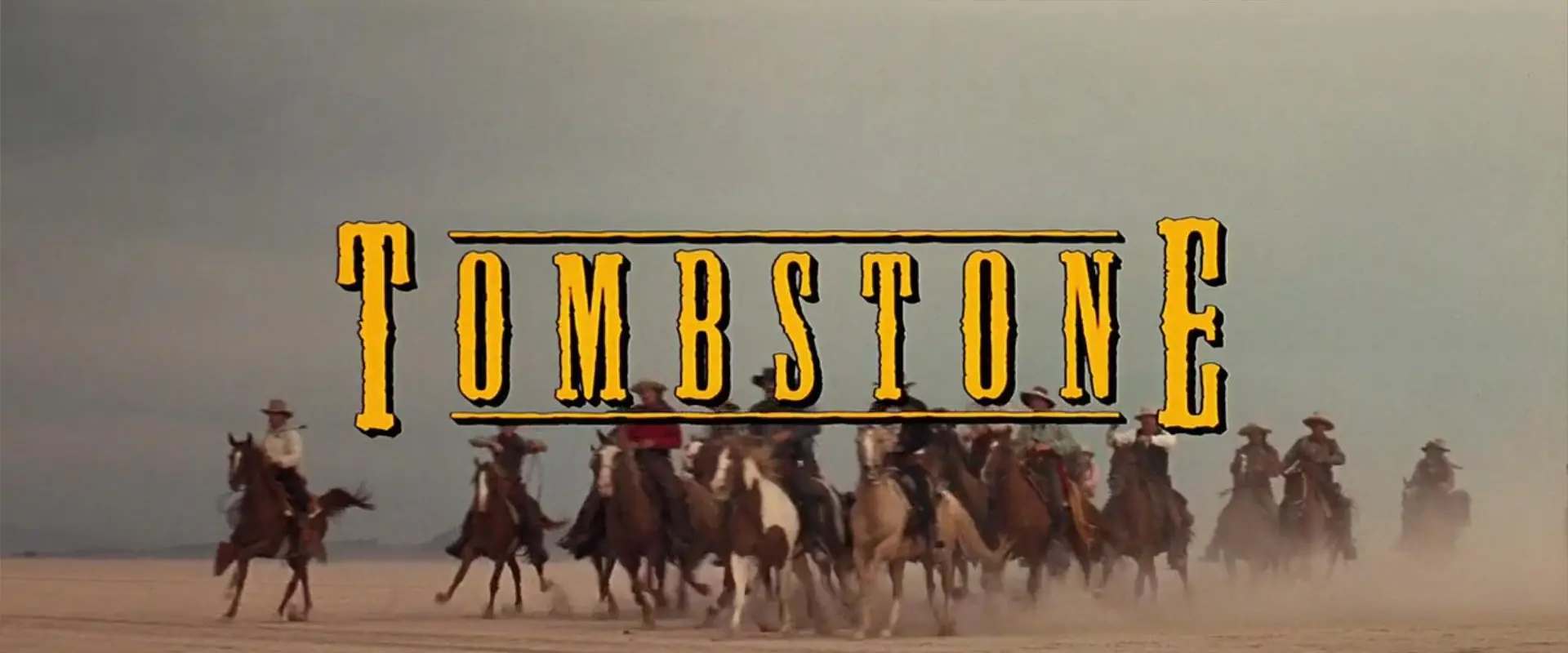
It is precisely this period of Earp’s life—similar to the one depicted in the City Without Law series—that George P. Cosmatos’ film focuses on. The director of Cobra—recommended for this project by none other than Sylvester Stallone—had a relatively small hand in the project’s success, which turned out to be his last significant work (and his penultimate film overall). Nevertheless, his name is prominently featured in the opening credits. And he isn’t alone there, as Tombstone boasts a lineup of true legends and heavyweights of the silver screen. The most striking feature, of course, is its star-studded cast.
Who isn’t in this film?
In addition to the perfect Wyatt Earp played by Kurt Russell and Sam Elliott and Bill Paxton as his brothers Virgil and Morgan (for some reason, the presence of Warren and James Earp during these events was ignored), the screen is graced by stars at the height of their form. These include Val Kilmer (as Earp’s friend, the gunslinger Doc Holliday), Powers Boothe and Michael Biehn (leaders of the gang known as the Cowboys), Charlton Heston, Jason Priestley, Jon Tenney, Stephen Lang (who allegedly spent much of the shoot drunk as a skunk), Thomas Haden Church, Michael Rooker, Billy Bob Thornton, Tomas Arana, Robert John Burke, Billy Zane, John Corbett, Terry O’Quinn, and Frank Stallone. The roster is rounded out by the lovely Dana Delany and Joanna Pacuła as Holliday’s lover, Big Nose Kate. The cherry on top is the voiceover narration by Robert Mitchum himself, whose on-set accident ultimately ruled out his participation as the patriarch of the Clanton family (though his son, Christopher Mitchum, appears). In a fascinating detail, the film even features Wyatt Earp—a descendant of the legendary lawman—playing Billy Claiborne.
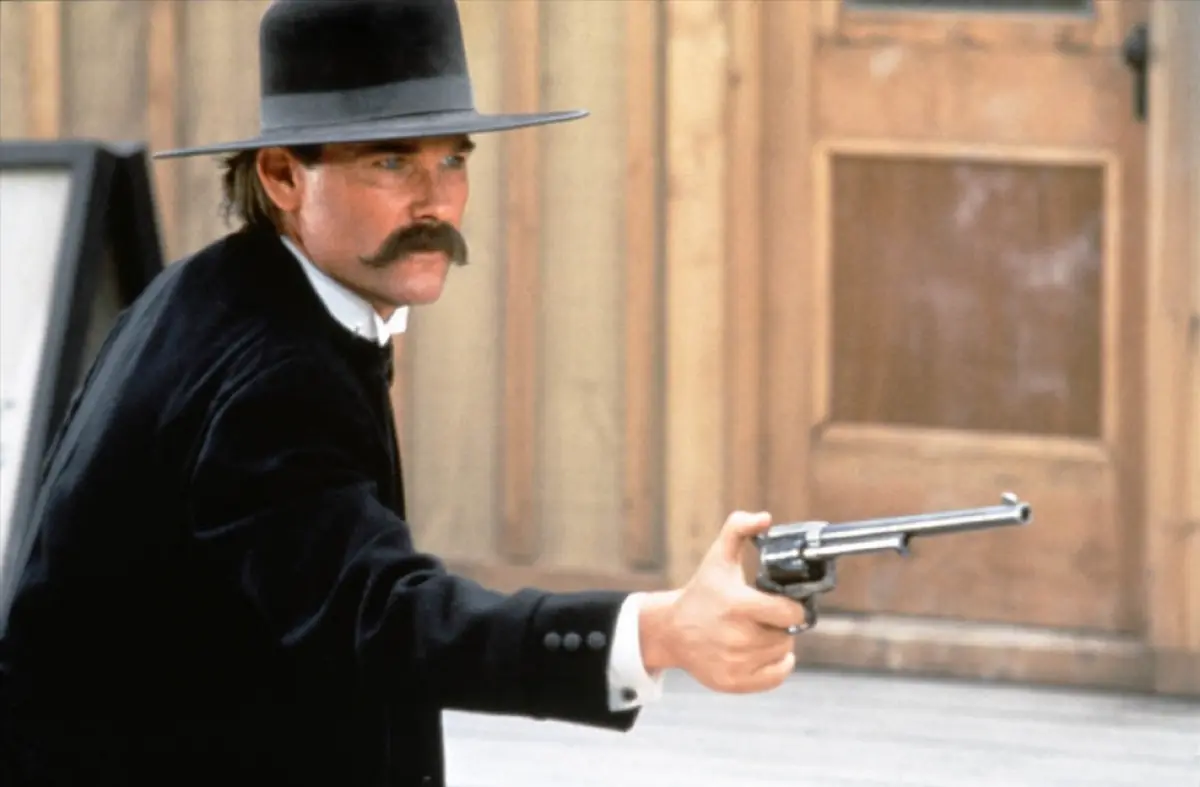
Granted, some of these actors were little-known or completely unknown at the time. Nonetheless, each of them has their moment to shine, significantly enriching the story and enhancing the already excellent film. Thanks to the superb acting, Tombstone comes alive and captivates. Even the most minor characters are distinctive, with unique personalities and traits that make them memorable and easy to place in the narrative, even if we don’t know their names.
Furthermore, even though the film is essentially a showdown between Russell, Kilmer, and Biehn—with Kilmer, undoubtedly, stealing the show with what is likely a career-defining, yet criminally underappreciated performance—no one in the ensemble allows themselves to be overshadowed. Beyond adding color to the production, they bring necessary emotion and convincingly portray the complex relationships among the characters—both romantic and filled with animosity. This complexity is another of the film’s strengths, making it far more nuanced and mature than the average blockbuster.
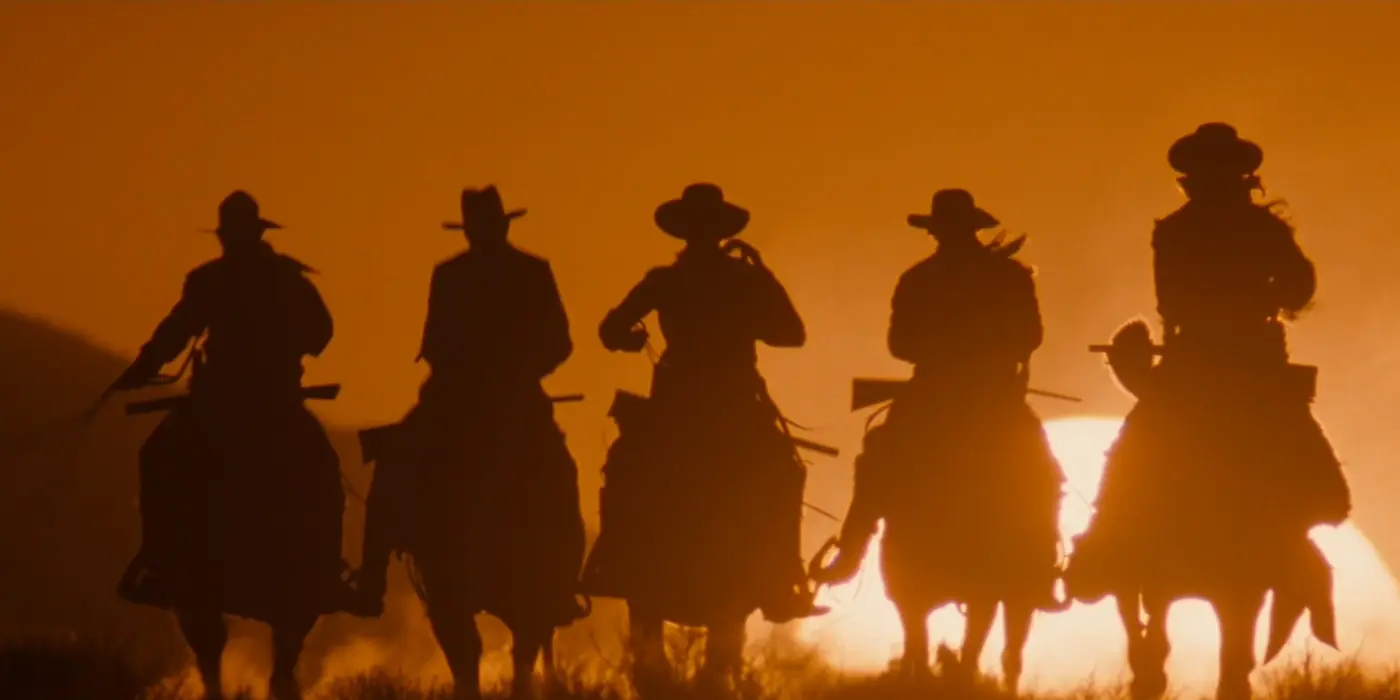
The film strikingly balances the boundaries of law, good, and evil. While we sympathize with Earp and his family and root for him as he hunts down the Cowboys, the conflict is well-grounded and doesn’t boil down to simple good versus evil. Earp’s friendship with Holliday—beautifully depicted, though slightly idealized—raises moral questions. Compounding this are numerous situations where Earp, ostensibly retired from law enforcement, loses control over events he himself instigates. While it’s easy to dislike the Cowboys, it’s equally easy to understand them. These are multidimensional characters, carrying similar burdens to Wyatt and Doc, fleeing their demons, and challenging to decipher, with their own justifications and flaws. The ethics of their actions are frequently questioned, and the boundaries between right and wrong often blur. As a result, the conflict looms large from the opening credits, with no clear winners or losers, regardless of how many bullets fly. Everyone suffers, especially the innocent bystanders.
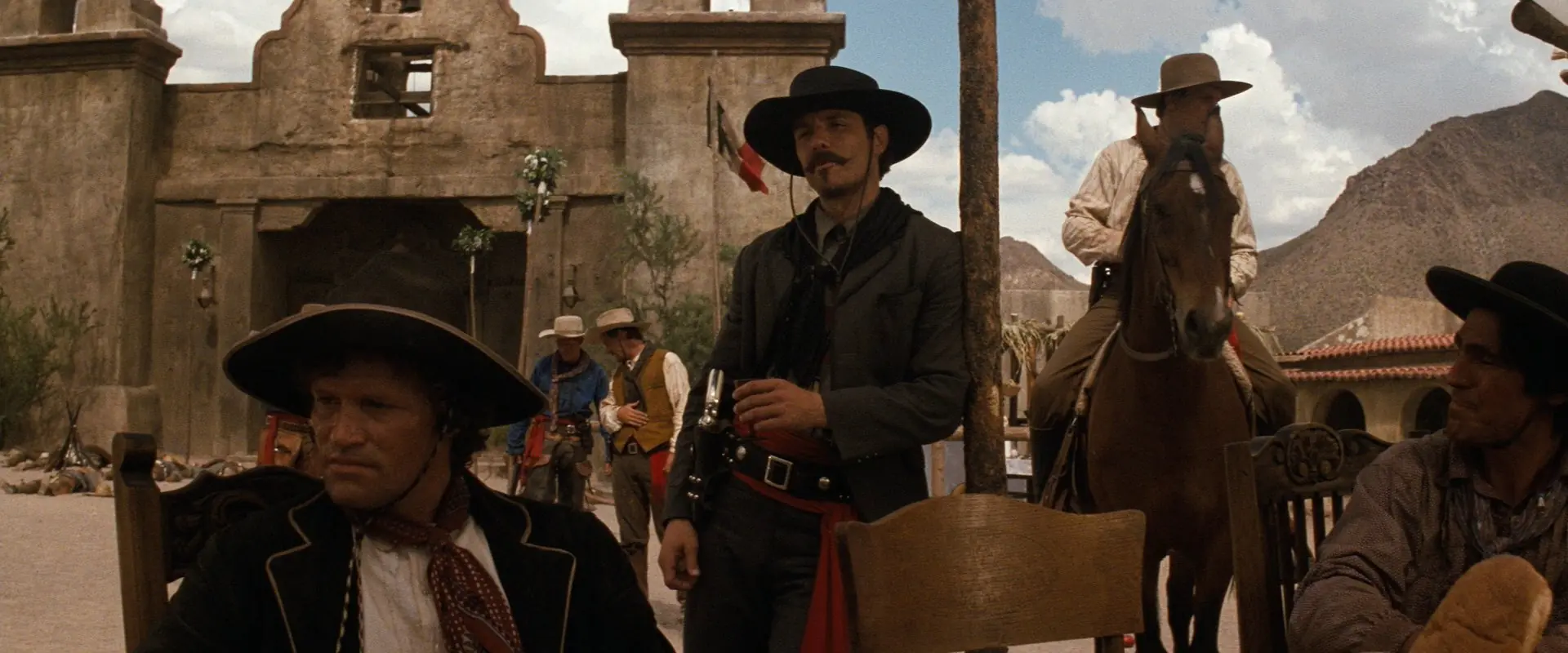
Of course, some aspects of Earp’s life have been polished or altered for the sake of greater drama. However, the filmmakers have still crafted a highly entertaining film, arguably the most faithful to historical records (which described the gunfight as a slaughter, a massacre, and vigilante justice meted out to defiant members of the gang). The film feels authentic, though one suspects the truth—if it ever existed—has long been lost to the relentless passage of time and successive reinterpretations. Despite numerous production challenges, Tombstone astonishes with its cohesiveness. Even if it doesn’t fully realize its potential and feels somewhat fragmented, it leans much closer to brilliance than disappointment.
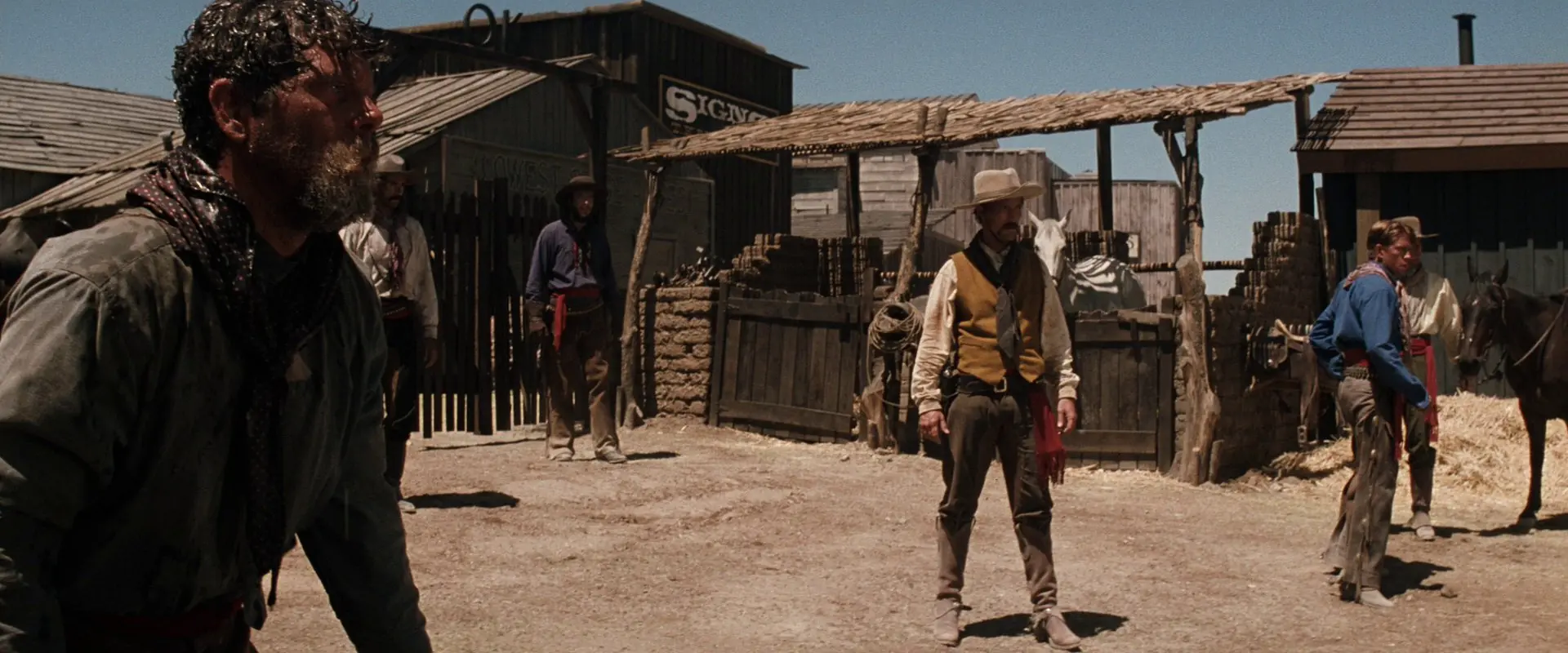
Putting aside rumors that John Carpenter was close to directing; that veteran composer Jerry Goldsmith was initially set to score the film (he wrote his final western score a year later for The Ballad of Little Jo); that Richard Gere nearly played Earp, Willem Dafoe nearly played Holliday, Mickey Rourke turned down Johnny Ringo, and Glenn Ford was allegedly cast as an elderly Sheriff White (though the real White was much younger)—none of that matters in the end. What does matter is that Tombstone had a rightful “father” in Kevin Jarre. The man, unrelated to the famous musicians, was not only the screenwriter but also initially the director. Predictably, artistic differences with the producers—likely over the film’s shape and length—led to his dismissal.
Tombstone was initially much longer than the two-hour version released in theaters.
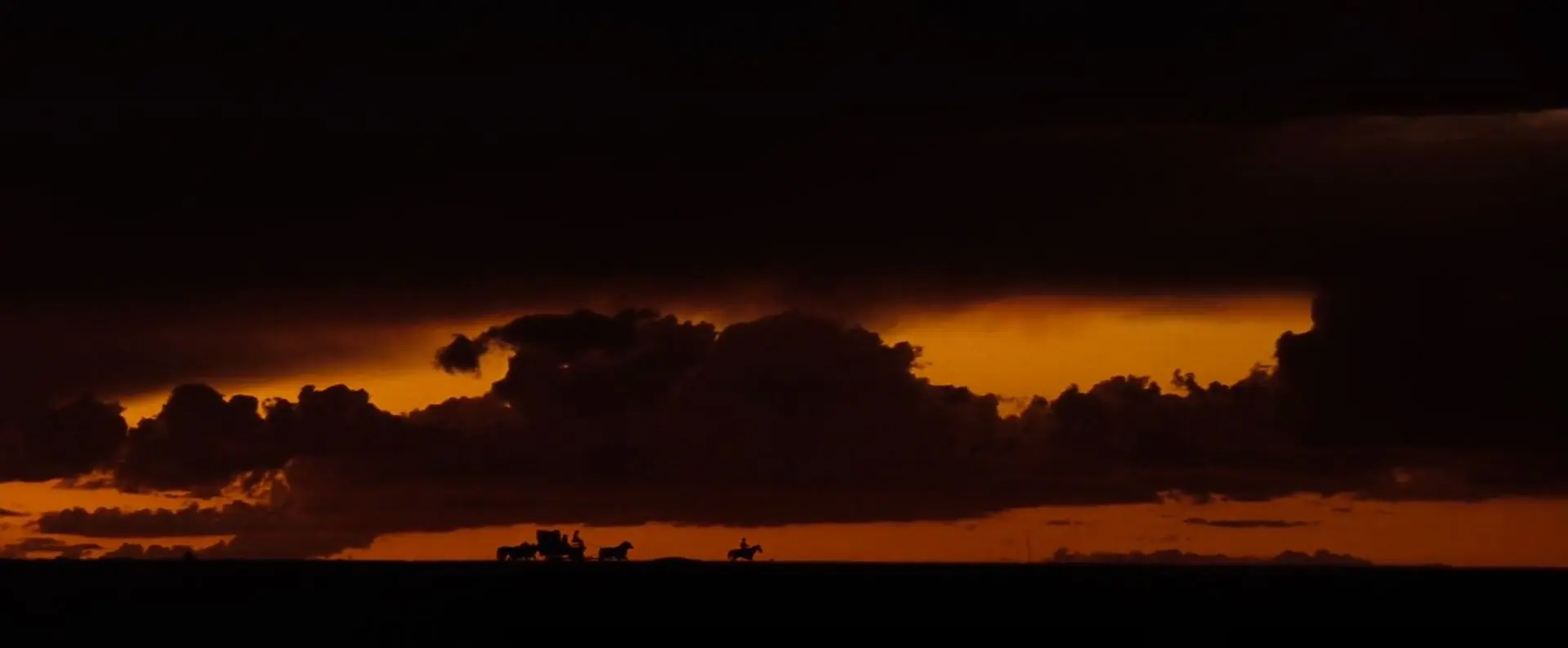
Although a director’s cut with four additional minutes was released on DVD years later, it hardly captures Jarre’s vision of an epic saga detailing the lives of everyone involved in the events. Instead, Jarre was replaced, and Kurt Russell took over directing duties temporarily, fearing the project might be shelved. By the time Cosmatos arrived to trim the script and focus on the Earp family, Russell had already directed much of the footage. How much of this is true remains unclear, especially since most of those involved have since passed away.
Jarre, known for Glory and later The Mummy, died of heart failure in 2011 . Cosmatos, who dedicated Tombstone to his wife, who died during production, succumbed to lung cancer in 2005. Goldsmith, esteemed cinematographer William A. Fraker (whose vibrant cinematography brings the film to life), and several studio executives have also passed. Yet fragments of unused scenes linger in trailers, and Jarre’s vision can be tasted in Giles Tippette’s novelization of the screenplay.

All of that ceases to matter when you experience the finished product. The film, in which Biehn and Paxton share the screen for the fifth and final time (memorable and often confused as the marines from the Aliens sequel), is a rare example of cinema that, despite its flaws and inconsistencies, simply works. Almost everything here clicks and runs like clockwork. It entertains, intrigues, and engrosses. You might have some serious reservations about Tombstone, yet each time you watch this masculine ethos unfold, it’s as gripping as the first time and tastes just as satisfying. Who knows, perhaps with repeat viewings, as you catch more details in the background and delightful touches like subtle bloopers or nuances, the film might even feel better than before. And yet, it’s not a revolution in the genre, a masterpiece, or an artistically refined work. Narratively and technically, it’s simply solid, skillful craftsmanship.
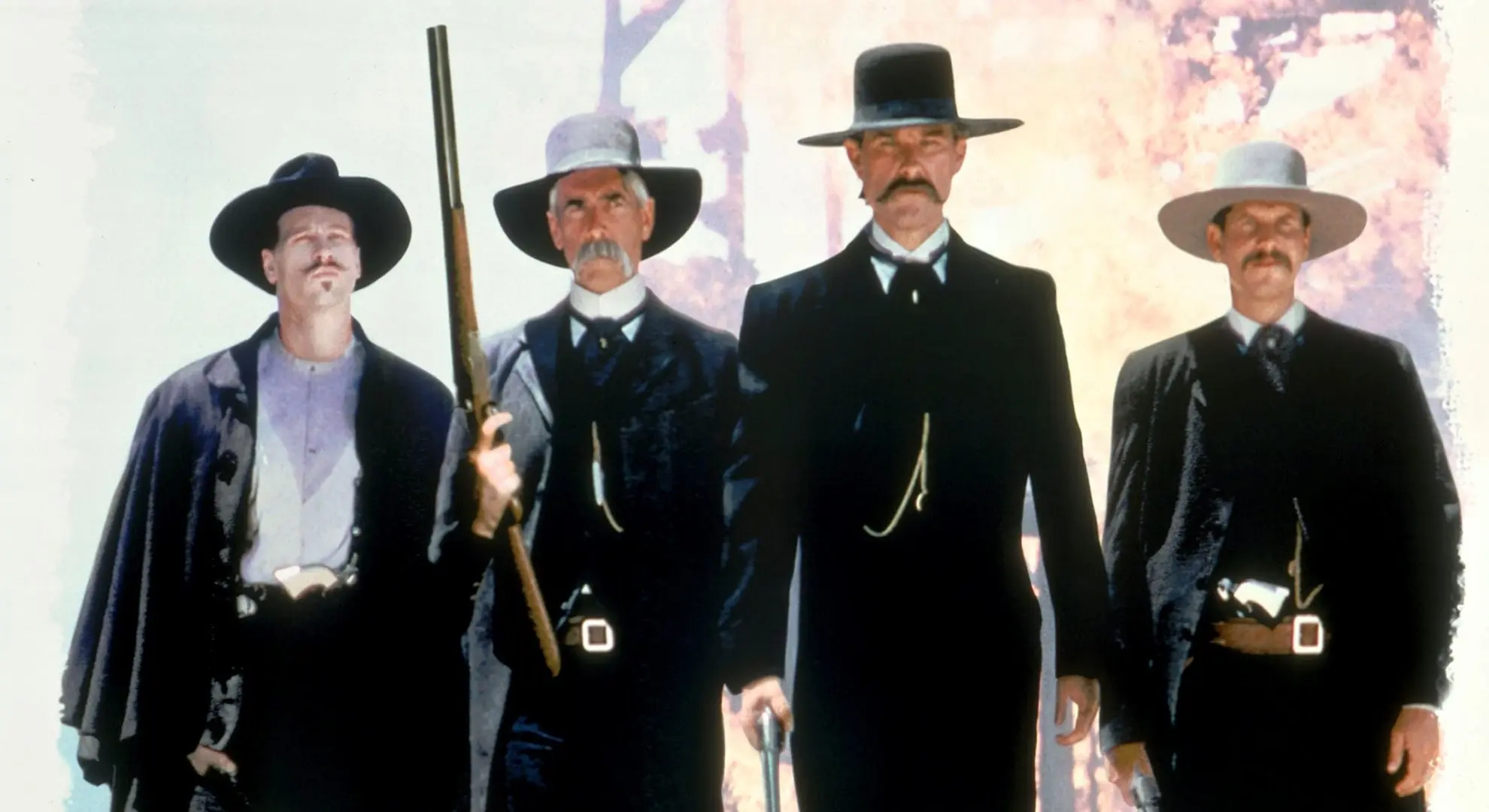
Still, it leaves the impression of being exceptional in its own way. The atmosphere certainly benefited from shooting on location in the real town of Tombstone, though it was slightly enhanced for Hollywood’s needs. The crew complained about the intense heat, which they endured while wearing layers of ornate period costumes, and the abundance of scorpions. But their effort and sacrifice (Val Kilmer, during his final scene, lay on an ice-packed bed to better convey his character’s deathly state) paid off. And not just financially, as the film grossed over twice its $25 million budget.
Although it’s hard to find major, significant industry awards associated with this production, critics quickly recognized the work of Cosmatos and company, calling it, for example, “one of the greatest westerns ever made.” Over time, the status and reputation of Tombstone—as the last truly great, dignified western in history—only grew. This, in turn, threw Kevin Costner and Lawrence Kasdan’s far more ambitious version into the shadows, as their Wyatt Earp, released less than six months later, was considered a boring failure. Not entirely justly, but that’s another story…
In the meantime, if you’re looking for a way to begin your journey into the genre or simply need an idea for a movie night, look no further. Tombstone speaks for itself with Doc Holliday’s immortal words:
I’m your huckleberry!

